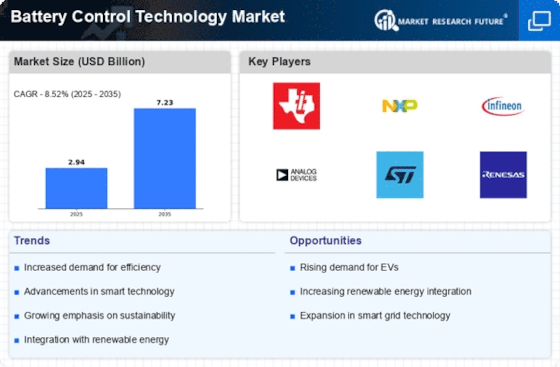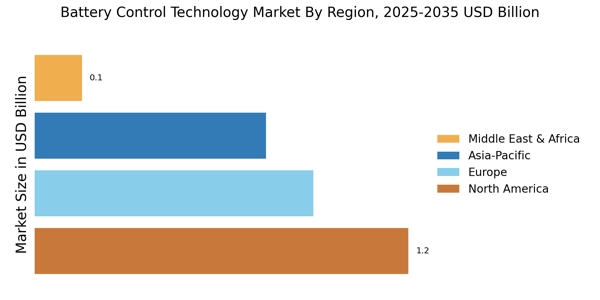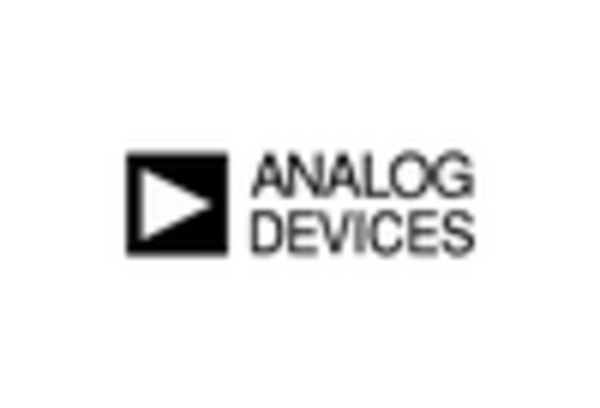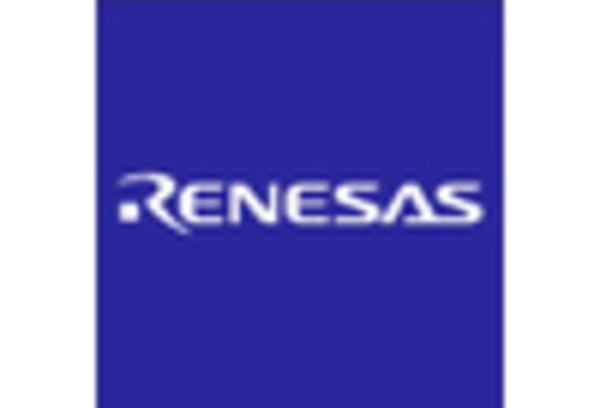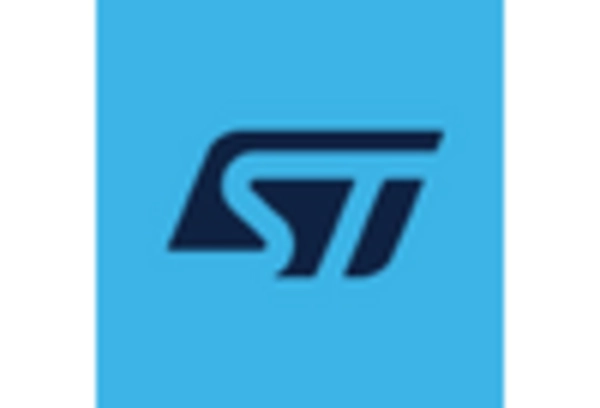Growing Renewable Energy Sector
The expansion of the renewable energy sector is significantly influencing the Battery Control Technology Market. As countries strive to transition to cleaner energy sources, the demand for efficient energy storage solutions has intensified. Battery control technologies are essential for managing the storage and distribution of energy generated from renewable sources such as solar and wind. In 2025, The Battery Control Technology Market is anticipated to exceed USD 30 billion, with a substantial portion attributed to advancements in battery control systems. These technologies facilitate the integration of renewable energy into the grid, ensuring stability and reliability. Thus, the Battery Control Technology Market stands to gain from the increasing investments in renewable energy infrastructure.
Rising Demand for Electric Vehicles
The increasing adoption of electric vehicles (EVs) is a primary driver for the Battery Control Technology Market. As consumers and manufacturers prioritize sustainability, the demand for efficient battery management systems has surged. In 2025, the EV market is projected to grow significantly, with estimates suggesting that over 30 million units will be sold worldwide. This growth necessitates advanced battery control technologies to optimize performance, enhance safety, and extend battery life. Consequently, manufacturers are investing in innovative battery management solutions to meet the evolving needs of the automotive sector. The Battery Control Technology Market is thus positioned to benefit from this trend, as it plays a crucial role in ensuring the reliability and efficiency of EV batteries.
Increased Focus on Consumer Electronics
The rising demand for consumer electronics is a notable driver of the Battery Control Technology Market. As devices such as smartphones, laptops, and wearables become more prevalent, the need for efficient battery management solutions has escalated. In 2025, the consumer electronics market is projected to reach USD 1 trillion, with a significant portion of this growth attributed to advancements in battery technology. Manufacturers are increasingly seeking sophisticated battery control systems to enhance device performance, extend battery life, and ensure user safety. This trend is likely to propel the Battery Control Technology Market, as it plays a pivotal role in meeting the evolving requirements of the consumer electronics sector.
Regulatory Support for Energy Efficiency
Regulatory frameworks promoting energy efficiency are driving the Battery Control Technology Market. Governments worldwide are implementing stringent regulations aimed at reducing carbon emissions and enhancing energy efficiency in various sectors. These regulations often mandate the use of advanced battery management systems to optimize energy consumption and minimize waste. For example, initiatives such as tax incentives for energy-efficient technologies are encouraging manufacturers to adopt innovative battery control solutions. As a result, the market for battery control technologies is expected to expand, with projections indicating a growth rate of approximately 12% annually through 2030. This regulatory support is crucial for fostering innovation and adoption within the Battery Control Technology Market.
Technological Advancements in Battery Management Systems
Technological innovations in battery management systems (BMS) are propelling the Battery Control Technology Market forward. Recent advancements in software algorithms and hardware components have enabled more precise monitoring and control of battery performance. For instance, the integration of real-time data analytics allows for improved state-of-charge estimation and thermal management, which are vital for enhancing battery lifespan and safety. The market for BMS is expected to reach USD 10 billion by 2026, reflecting a compound annual growth rate of over 15%. This growth is indicative of the increasing reliance on sophisticated battery control technologies across various applications, including renewable energy storage and consumer electronics, thereby driving the overall market.


